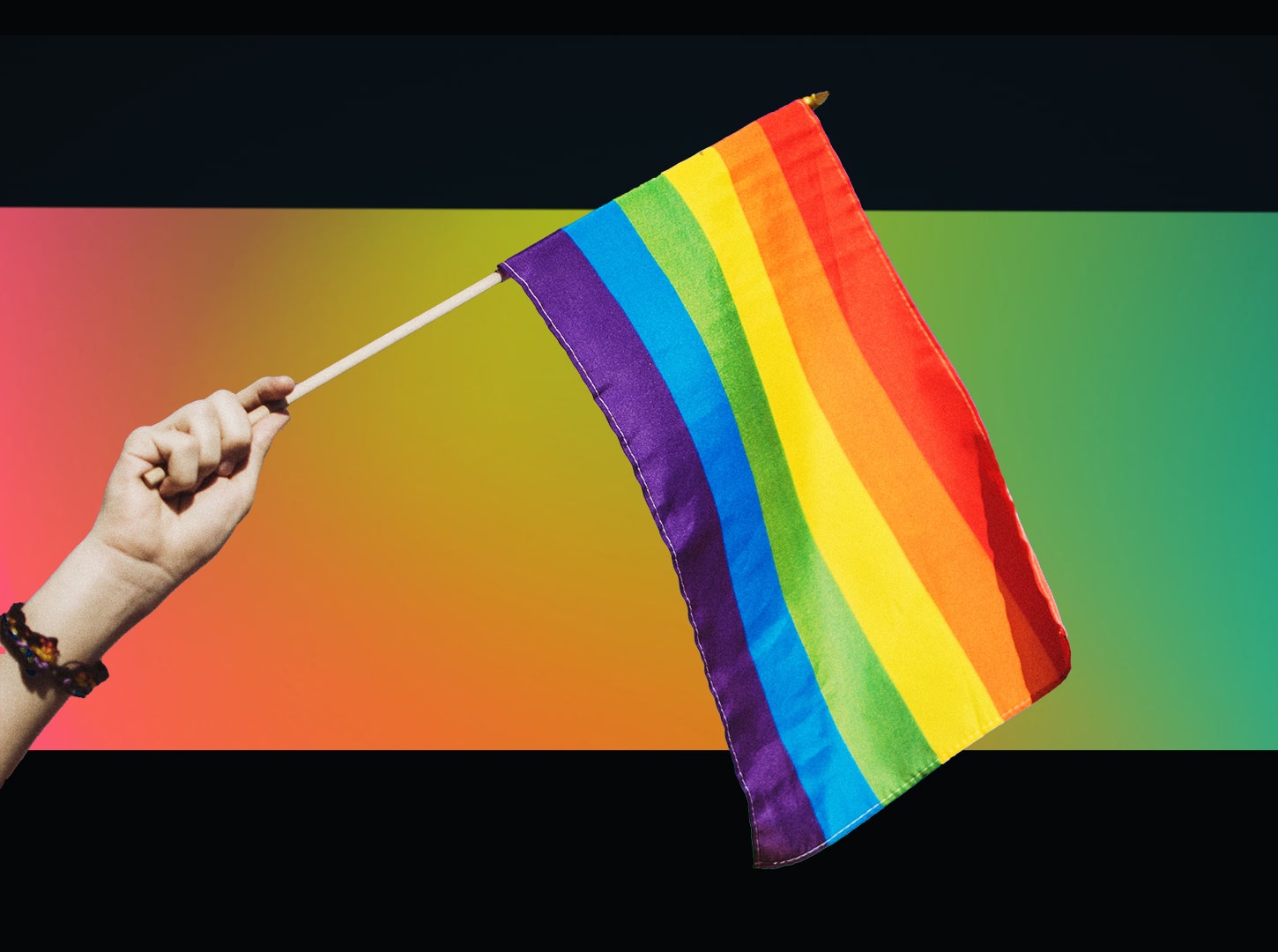Pride Month takes place each June and offers companies an opportunity to lean in and support the LGBTQIA community. Discover some consumer brands that are leaning in to celebrate Pride.
KEY TAKEAWAYS:
- CEOs can take action both within their organization and externally, as they actively develop public allyship that matters by creating inclusive policies and benefits; offering LGBTQIA+ employee resource groups; providing education and training; and demonstrating meaningful, active allyship.
- When a company truly imbues the LGBTQIA+ community’s cause, it becomes a part of how the organization views humanity overall. By modeling behavior, taking a proactive stance, and implementing initiatives that support diversity, equity, and acceptance, leaders inspire others to follow suit.
- Interested in learning more about how to make your organization more inclusive? Reach out to Rhonda Taylor via email here to start the conversation.
In the journey toward LGBTQIA+ inclusivity, leaders play a crucial role in driving change and fostering a culture of acceptance within their organizations. As societal attitudes evolve, impactful leaders seek to cultivate dynamic brands that appeal to a larger audience within society — believing that if a brand is for everyone, then everyone should be able to “see themselves” in the brand. Creating needed charge by implementing LGBTQIA+ initiatives and modeling behavior that supports diversity and inclusion is one of many ways to accomplish this objective. In this article, we will explore how these leaders are championing LGBTQIA+ rights, creating inclusive environments, and inspiring others to follow their lead.
What corporate LGBTQIA+ support looks and feels like in 2023
In a phrase, it’s tough. As has been discussed ad nauseam as of late, “public” corporate support for LGBTQIA+ has not been a foregone conclusion, even with brands that are passionate about supporting this community. There has been politicized backlash recently from both sides of the aisle for doing or not doing what is needed to adequately support this community. The Washington Post accounts the woes that Target and Bud Light have recently endured for their efforts to publicly support the LGBTQIA+ community, which resulted in a second firestorm when each of them tried to dial back their initial commitments.
Having noted that, both brands remain engaged in this year’s Pride celebrations. Target is a platinum sponsor of the hallowed NYC Pride event and Bud Light’s parent Anheuser-Busch is a sponsor of Pride celebrations in Chicago, San Francisco, Charlotte, and several other large cities. Although each brand must decide for itself if and how it would like to stake a claim within the LGBTQIA+ community, the heat on this topic seems charged anew by our political framework, both within the U.S. and globally.
How it looks when senior leadership acts
We have reached a point as a community, where many forward-thinking CEOs realize that their platform can be powerfully utilized to forward initiatives for the LGBTQIA+ community. Moreover, many CEOs and top executives are using their brands to not only publicly support LGBTQIA+ rights, and act as vocal advocates for change, but are realizing that these actions, much of the time, are employee-supported and passionately engaged from within. When CEOs leverage their visibility to speak out against discrimination, support LGBTQIA+ legislation, and participate in Pride Month events, employees are rallying behind these efforts like never before. By taking a stand, these leaders demonstrate their commitment to LGBTQIA+ inclusivity and encourage others to follow suit.
Here are the most impactful ways we see CEOs taking action both within their organization and externally, as they actively develop public allyship that matters.
- Creating inclusive policies and benefits. Leadership goes beyond mere words when their actions match their promises. This involves implementing tangible changes within organizations. Proactive leaders recognize the need for inclusive policies that protect LGBTQIA+ employees from discrimination and create a safe work environment. They strive to offer comprehensive benefits that address the unique needs of LGBTQIA+ individuals, such as transgender healthcare coverage, gender-neutral restrooms, and inclusive family leave policies. By prioritizing such policies, leaders model behavior that values and supports LGBTQIA+ employees.
- Building LGBTQIA+ employee resource groups. Leadership actively fosters inclusivity when spaces are provided for LGBTQIA+ employees to connect, support one another, and contribute to organizational change. Effective leaders may establish LGBTQIA+ Employee Resource Groups (ERGs) that provide a platform for networking, mentoring, and advocacy. These groups empower LGBTQIA+ employees to share their experiences, drive awareness, and propose initiatives that promote inclusivity throughout the organization. Leaders who actively support and collaborate with ERGs foster a sense of belonging and demonstrate their commitment to LGBTQIA+ representation and visibility.
- Education and training programs. Leaders who are dedicated to driving change prioritize education and training programs on LGBTQIA+ issues within their organizations. They recognize the importance of creating awareness, dispelling stereotypes, and fostering a deeper understanding of LGBTQIA+ identities and experiences. Through workshops, diversity training, and educational resources, leaders ensure that employees at all levels are equipped with the knowledge and empathy to build inclusive environments. By investing in education, leaders can help set the foundation for a more understanding and accepting workplace culture.
- Authentic allyship. Leaders who champion LGBTQIA+ inclusivity understand the significance of allyship. They actively support and amplify LGBTQIA+ voices, providing platforms for their stories to be heard. Whether it’s through hosting panel discussions, inviting LGBTQIA+ advocates as guest speakers, or featuring diverse voices in company communications, these leaders create opportunities for open dialogue and promote a culture of acceptance. By being visible allies, they set an example for others and encourage a collective effort toward LGBTQIA+ equality.
Who is taking action and winning because of it?
Although there are many CEOs and other executive leaders out there who are leading by example in this arena, we want to specifically highlight a few companies and leaders that are unapologetically consistent, dedicated to inclusivity and equity, and are making a difference while growing their brand, engaging their people, and supporting their communities.
NotCo’s CEO Matias Muchnick has long valued diversity, inclusivity, and equity (not only for employees but also within the communities where NotCo’s brand exists). NotCo’s goal has been to reinvent the food industry — one delicious mouthful at a time. At NotCo they replicate the animal products we all love to eat; they taste like, cook like and feel like our favorite foods, but are made with the best of plants. Their focus on their DEI&B initiatives combined with their overall support of the LGBTQIA+ community and beyond, are easily experienced when interacting with their team, but also experienced throughout the brand-at-large.
Diageo-backed Distill Ventures is another organization that openly champions the LGBTQIA+ community. Since launching its Pre-Accelerator Programme in July 2021 — the world’s first independent drinks accelerator devoted to building and scaling the drinks brands of the future — Distill Ventures has invested its initial goal of $5 million to entrepreneurs from underrepresented communities. Through the Pre-Accelerator, the company has created a more accessible runway to unlock seed funding — a key barrier reported by entrepreneurs from historically underrepresented communities. Since its launch, it has attracted more than 300 applications from a broad range of applicant backgrounds, with nearly 50 percent of applicants identified as women, 50 percent as Black/African/Caribbean, 17 percent as Latinx, 16 percent as having Asian heritage, and 11 percent as LGBTQIA+. Looking ahead, Distill Ventures plans to target a wider range of founders and geographies, with added emphasis on recruiting more women and LGBTQIA+ entrepreneurs into the Pre-Accelerator and its wider portfolio.
Bottom line
Leadership plays a pivotal role in driving change and fostering LGBTQIA+ inclusivity within consumer brands who want to make a difference, beyond their corporate missions and visions. When a company truly imbues the LGBTQIA+ community’s cause, it becomes a part of how the organization views humanity overall. By modeling behavior, taking a proactive stance, and implementing initiatives that support diversity, equity, and acceptance, leaders inspire others to follow suit. As they advocate for LGBTQIA+ rights, create inclusive policies, foster employee resource groups, prioritize education, and demonstrate allyship, they pave the way for others to safely follow.
Interested in learning more about how to make your organization more inclusive? Reach out to Rhonda Taylor via email here to start the conversation.

Patrick Proctor
Patrick Proctor has more than 20 years of global business, people operations/HR, CSR, and organizational development experience. Patrick has held multiple roles within the C-suite and has consulted for scores of companies in countless industries. Patrick writes on these and many other issues impacting businesses today.

